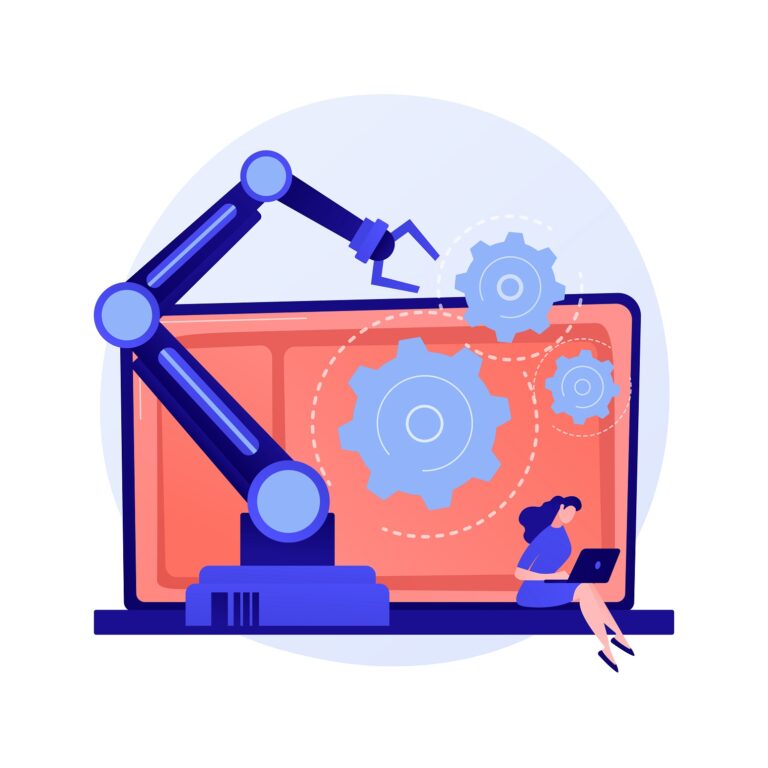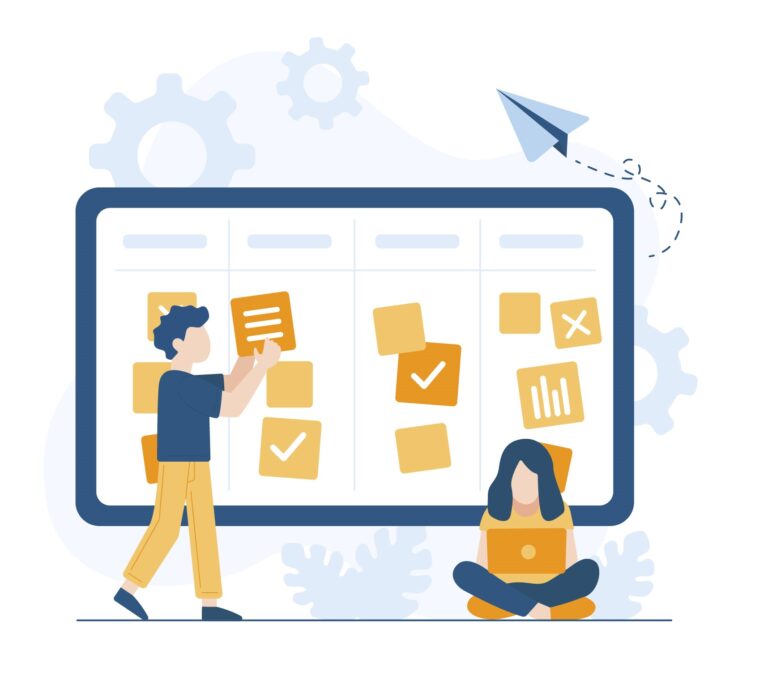AI in Negotiations: How AI can Help You Win in Business Deals
Navigating the intricate dance of business negotiations, this article delves deep into the transformative role of Artificial Intelligence. From the historical evolution of AI’s presence in the negotiation arena to its futuristic potential, we explore its myriad benefits and the challenges it presents. Drawing a comprehensive picture, we touch upon the technical backbone that powers these AI tools, the ethical dilemmas they stir, and offer insights into their effective implementation for businesses. Concluding with a gaze into the horizon, we underscore the importance of staying updated in this rapidly evolving field, ensuring businesses remain at the forefront of negotiation excellence.
I. Introduction
A. The Evolution of AI in Business
It wasn’t too long ago that artificial intelligence was a concept reserved for sci-fi novels and futurist visions. Now, it’s all around us. We find it in our smartphones, behind our online search results, and even in our cars. Businesses, no matter the size, are no strangers to the whirlwind of changes brought about by AI. As we trace back to the early days of AI in business, we encounter simple algorithms designed to handle repetitive tasks, a far cry from the advanced, self-learning systems we interact with today.
Over the decades, this remarkable technology has transitioned from being a ‘nice-to-have’ to an essential business tool. It’s moved from backend operations, streamlining inventory management, and data handling to front-line customer interactions, marketing predictions, and decision-making processes. Today, we stand at the cusp of yet another AI revolution—its application in business negotiations, a realm traditionally dominated by human intuition and experience.
B. Objective of the Article
In a rapidly evolving business world, staying updated is not just beneficial; it’s vital. As negotiations become more intricate and global, there’s an increasing need for tools that can keep up, guiding us towards the best possible decisions. This article aims to shed light on the transformative potential of AI in negotiations, making this often-esoteric subject more approachable and understandable.
Our journey will take us through a deep dive into how AI tools are reshaping the negotiation landscape, their intrinsic benefits, potential challenges, and a glance into the future. By the end, we hope to provide a comprehensive guide for businesses considering the leap into AI-enhanced negotiations, armed with the knowledge of what to expect and how to make the most of these tools.
II. The Role of AI in Modern Business Negotiations
A. Historical Context: Traditional vs. AI-enhanced Negotiations
The art of negotiation, in its essence, is a dance of psychology, strategy, and mutual interests. Historically, successful negotiations hinged on human intuition, experience, and the ability to read subtle cues — be it a hesitant voice or a shift in posture. Such negotiations demanded a blend of art and science, where tacit knowledge often outweighed data.
However, as businesses expanded globally and operations grew complex, data became indispensable. Enter the realm of AI-enhanced negotiations, where vast swathes of data are analyzed in real-time to provide negotiators with actionable insights. Unlike traditional methods, where gut feelings and personal experiences predominated, AI brings in a systematic, data-driven approach.
It’s essential, though, to understand that AI doesn’t negate the human touch. Instead, it augments it. While the emotional intelligence of a seasoned negotiator is irreplaceable, AI offers the tools to better inform those instincts, ensuring decisions are not just based on feelings but are also backed by concrete data.
B. The Relevance of AI in Decision-making Processes
In today’s intricate business landscape, decisions can’t be made in isolation. Every choice has ramifications, often affecting myriad variables that might not even be immediately evident. Here’s where AI proves its mettle. By sifting through vast amounts of data, AI tools can predict potential outcomes, weigh pros and cons, and even suggest optimal paths to take.
For negotiations, this capability is invaluable. Imagine entering a discussion room, armed not just with your personal expertise but also with insights drawn from countless similar negotiations, market trends, and even the behavioral analysis of your counterpart. The relevance of AI here is not about replacing human discretion but enhancing it.
The modern decision-making process is increasingly about collaboration — between humans and machines. AI tools offer insights, but it’s up to the human negotiator to apply them judiciously. In doing so, they ensure that choices made are not just good for immediate gains but also align with long-term strategic goals.
III. Core Benefits of Integrating AI into Negotiations
A. Enhancing Data-driven Decisions
The nuances of negotiation often revolve around not just what is said, but what lies between the lines — the unsaid, the inferred. Historically, negotiators relied on intuition, personal experiences, and sometimes, mere chance. However, as businesses evolve in the digital age, the focus has shifted towards more consistent, data-driven decisions.
By incorporating AI into negotiations, businesses can harness the power of vast datasets, ensuring that decisions are made based on facts, figures, and historical trends rather than just instinct. AI doesn’t merely present data; it interprets it, transforming raw numbers into meaningful insights. These insights give negotiators an upper hand, allowing them to understand patterns, forecast trends, and even preempt counterpart moves.
In essence, a data-enhanced negotiation is akin to playing chess with a bird’s-eye view of the board. You see not just the current state but potential future moves, providing a strategic advantage.
B. Real-time Predictive Analysis for Strategy Formulation
Negotiations are dynamic. What starts as a certain strategy can swiftly change course based on unfolding discussions. Here, AI’s prowess in real-time predictive analysis shines. As conversations progress, AI tools can instantly analyze incoming data, juxtapose it with historical trends, and provide updated strategies.
For instance, if a counterpart makes an unexpected offer, AI can instantly compute the implications of accepting, countering, or declining the offer, giving the negotiator a clearer picture of potential outcomes. This rapid recalibration of strategies ensures that negotiators remain a step ahead, always prepared, and never caught off guard.
The implications of such real-time analysis are profound. It means businesses can navigate the uncertain waters of negotiations with a compass that continually points them toward their desired outcome.
C. Neutralizing Human Bias: The AI Edge
No matter how seasoned a negotiator is, human biases, both conscious and unconscious, can influence decisions. These biases can stem from personal experiences, cultural backgrounds, or even recent events. While these human elements bring richness to negotiations, they can also introduce unpredictability.
AI, being devoid of emotions, offers a counterbalance to these biases. By analyzing data objectively, it provides a neutral perspective, one that is uninfluenced by personal beliefs or past experiences. This neutrality ensures that choices made during negotiations are grounded in facts and not clouded by emotions or prejudices.
Moreover, by offering an unbiased viewpoint, AI fosters trust. Counterparts can be assured that offers and counteroffers are based on objective data, ensuring transparency and fostering a spirit of collaboration.
IV. Overcoming Challenges of AI in Negotiations
A. Addressing the Learning Curve
Adopting AI tools for negotiations, like any other technological adoption, requires understanding and adaptation. Not every business professional is well-versed with AI’s intricate workings, and this can initially lead to skepticism or misuse. Training is pivotal. Ensuring that negotiation teams comprehend how to use AI tools, interpreting the data correctly, and knowing when to trust the machine versus when to rely on human instinct is paramount. By investing in education and continuous learning, businesses can harness AI’s full potential while ensuring that negotiators feel confident in their AI-assisted decisions.
B. Ethical Considerations in AI-driven Negotiations
As with all AI applications, ethics should be at the forefront of AI-assisted negotiations. The transparency of algorithms, data privacy, and ensuring that AI tools don’t perpetuate existing biases are significant concerns. Companies must be clear about how the AI makes decisions, where the data is sourced, and how personal information is protected. Moreover, businesses must be vigilant to ensure that AI tools are used fairly, avoiding any manipulation or unfair advantage that could tarnish the spirit of negotiation.
C. Navigating Dependence and Over-reliance
While AI offers many advantages, over-relying on it can be a pitfall. It’s crucial to strike a balance. Human negotiators bring to the table empathy, creativity, and an understanding of human nature, which no machine can replicate entirely. AI should be seen as a tool to enhance, not replace, the human element in negotiations. Ensuring that negotiators utilize AI as an assistant rather than a decision-maker helps in maintaining the personal touch essential for successful negotiations.
V. Technical Breakdown: How AI Tools Facilitate Better Negotiations
A. Algorithms and Data Analysis: The Backbone of AI Tools
The heart of AI’s transformative power in negotiations lies within its sophisticated algorithms and data analysis capabilities. Algorithms are sets of rules and patterns that AI uses to make sense of vast amounts of data. When we talk about AI-enhanced negotiations, these algorithms can process decades of business negotiation data, patterns, successes, and failures in mere seconds. They sift through this information to provide real-time recommendations and insights.
But it’s not just about speed. The depth of this analysis ensures that negotiators are equipped with nuanced insights that might have otherwise been overlooked. From identifying patterns in an opponent’s negotiation tactics to uncovering optimal concessions points based on historical data, the potential is vast. What’s even more remarkable is that as AI tools are used more frequently, they learn and refine their recommendations, evolving with each negotiation.
B. Emotional Recognition and Adaptive Response Systems
The realm of negotiation is not solely about numbers and historical data; it’s also deeply entrenched in human emotions, intentions, and reactions. Modern AI tools are now beginning to integrate emotional recognition systems, bridging the gap between quantitative data and qualitative human interactions.
By leveraging technologies such as facial recognition, voice tone analysis, and even physiological response monitoring, AI can provide a negotiator with insights into the emotional state of their counterpart. For instance, if a counterpart’s voice tone suggests uncertainty, the AI tool might recommend a different approach or tactic to leverage that moment.
Additionally, adaptive response systems in AI tools can modify their strategies based on real-time emotional feedback. Imagine having an assistant that not only tells you what the counterpart might be feeling but also adapts its recommendations on the fly based on those emotions. This fusion of emotional intelligence and machine learning propels the negotiation process into a realm where logic meets empathy, ensuring a more holistic approach to striking deals.
VI. Challenges and Concerns: A Balanced View
A. The Ethical Implications of AI in Negotiations
While AI’s integration into negotiations offers numerous advantages, it also ushers in a set of ethical considerations that can’t be ignored. The primary concern revolves around the potential for manipulation. With advanced AI tools capable of emotional recognition and adaptive responses, there’s a thin line between leveraging insights for a fair deal and manipulating a counterpart based on their emotional state. This power, if misused, can tip negotiations unfairly in favor of the one wielding the AI, raising questions about the morality of such practices.
Another ethical dilemma involves the transparency of AI’s involvement. Should both parties be made aware if one is employing AI tools in the negotiation process? If one side has access to sophisticated AI tools and the other doesn’t, it can create an asymmetry of information, leading to potential power imbalances in the negotiation room.
B. Data Privacy and Security Concerns
Beyond ethical dilemmas, the use of AI in negotiations also shines a spotlight on data privacy and security issues. To function at their peak, AI tools require vast amounts of data. In the context of negotiations, this could mean sensitive company data, personal information, and past negotiation records. The potential for data breaches or unauthorized access is a concern that companies need to address diligently.
Furthermore, the data that AI tools gather from counterparts—especially emotionally-oriented data—opens another can of worms. How is this data stored? Who has access to it? And for how long is it retained? These concerns become even more pertinent when international negotiations come into play, given the varied data protection regulations across countries.
In conclusion, while AI tools in negotiations promise a new frontier of efficiency and effectiveness, they must be used judiciously, keeping in mind the ethical and security considerations. The success of AI in negotiations will ultimately hinge on striking the right balance between leveraging technology and upholding the core values of trust and fairness that underpin every business deal.
VII. Implementing AI Negotiation Tools: A Guide for Businesses
A. Assessing Suitability and Integration Needs
When considering the adoption of AI-driven negotiation tools, businesses must first gauge whether such technology is suitable for their specific context. Not every negotiation scenario or business model will benefit from the nuances that AI brings. The first step, then, is a thorough assessment of the business’s negotiation processes. How complex are these negotiations? What kind of data is usually at play? Are the negotiations typically standard and straightforward, or do they involve a high level of emotion, strategy, and unpredictability?
Once there’s clarity on the nature of negotiations, the next question revolves around integration. Many businesses already utilize various software solutions for their operations, from CRM systems to inventory management platforms. Integrating AI tools should be seamless and should complement existing systems. For instance, can the AI tool easily draw from the data stored in these platforms? Is there a need for additional infrastructure or any prerequisite data structuring?
B. Best Practices for Deployment and Utilization
Having made the decision to incorporate AI into negotiations, businesses should be mindful of some best practices to ensure the tools are used effectively and ethically:
- Training and Orientation: It’s crucial for those involved in negotiations to understand how the AI tool works, its capabilities, and its limitations. Regular training sessions can help teams make the most of these tools while also understanding the ethical boundaries.
- Transparency with Counterparts: In some situations, it might be advisable, or even a legal requirement, to disclose the use of AI tools during negotiations, ensuring that all parties are on an even playing field.
- Regular Updates and Maintenance: AI tools, especially those relying on machine learning, require regular updates. The business landscape, negotiation dynamics, and available data keep evolving. As such, the tools must be kept current to remain effective.
- Feedback Loop: After each negotiation, there should be a process for teams to provide feedback on the tool’s effectiveness. This feedback can guide further refinements and ensure that the AI remains a beneficial asset in the negotiation process.
- Ethical Guidelines: Companies should set strict ethical guidelines about how AI tools are used. This includes the kind of data they can access, how this data is used, and ensuring no undue advantage is taken that could be perceived as manipulation.
By following these best practices and regularly assessing the AI’s performance and impact, businesses can harness the full potential of AI in negotiations, all while upholding their reputation and ethical standards.
VIII. The Future of AI in Business Negotiations
A. Emerging Trends and Innovations
As we stand at the crossroads of technology and business, the role of AI in negotiations promises an even more vibrant future. Several emerging trends are shaping the next wave of AI-driven negotiation tools.
- Personalized AI Negotiators: Advanced machine learning models are now aiming to craft AI negotiators tailored to individual businesses. This means AI systems that can adapt and learn specifically from a company’s past negotiations, ensuring a customized approach for future discussions.
- Voice and Sentiment Analysis: Beyond text, future AI tools are moving towards understanding voice tones, pitch variations, and other non-verbal cues. These tools will decipher underlying sentiments, providing an additional layer of depth to negotiations.
- Augmented Reality (AR) in Negotiations: Combining AI with AR can transform negotiation settings. Imagine wearing AR glasses during a negotiation that provides real-time data, sentiment analysis, and strategic recommendations based on live discussions.
- Neuro-linguistic Programming (NLP) Enhancement: Advanced AI systems will be equipped with better NLP capabilities, allowing them to understand context, sarcasm, humor, and other subtle linguistic nuances, refining their strategy recommendations.
B. Strategies for Staying Updated and Relevant
With the fast-paced evolution of AI in business negotiations, companies must adopt proactive strategies to stay updated and relevant.
- Continuous Learning: Encourage teams to regularly participate in workshops, online courses, and seminars focused on the latest AI negotiation tools and strategies. The more informed your negotiators are, the better equipped they’ll be to leverage AI’s benefits.
- Tech Partnerships: Building collaborations with AI tech firms and startups can provide businesses with early access to emerging tools and methodologies. These partnerships can also offer bespoke solutions tailored for specific business needs.
- Feedback Mechanisms: Just as businesses evolve, so do their negotiation needs. Maintaining a robust feedback mechanism with AI tool providers ensures that tools remain relevant to changing business scenarios.
- Engage with AI Communities: Platforms like GitHub, AI conferences, and forums are treasure troves of the latest developments. Engaging actively with these communities can provide insights into the next big thing in AI negotiations.
- Ethical Considerations: As AI tools become more advanced, revisiting and revising ethical guidelines regularly ensures that businesses remain on the right side of technology and morality.
The future of AI in negotiations is not just about more sophisticated algorithms but about creating an ecosystem where technology and human intuition coalesce, driving meaningful, successful, and ethical business discussions.
IX. Conclusion and Further Reading Recommendations
We’ve traversed the landscape of AI’s role in business negotiations, from its historical relevance to the exciting horizons of its future. What stands out is the transformative potential of AI, not just as a tool, but as a catalyst that can redefine the art and science of negotiations. In bridging data with human intuition, AI offers a more informed, strategic, and unbiased approach to business discussions.
However, like any powerful tool, AI comes with its own set of challenges. Ethical dilemmas, data security, and ensuring its right fit for individual business needs are aspects that decision-makers must grapple with. Yet, the overarching narrative remains positive. By adopting a proactive, informed, and ethical stance, businesses can harness AI’s capabilities to their fullest potential.
The journey of AI in negotiations is, in many ways, a reflection of the broader evolution of technology in the business world—offering immense possibilities, but demanding responsibility, foresight, and continuous learning.







